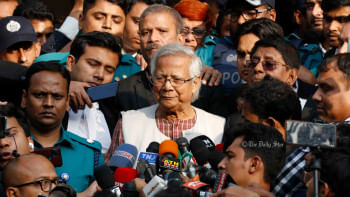Burners with no flame

Every morning, Shuvechchha Ghosh, a resident of Chattogram city's Askar Dighir Par area, wakes up being worried for her three-year-old son.
While the boy keeps crying for the first meal of the day, the mother knows she has no way to prepare it for him.
"Supply of gas stops before the sunrise and resumes at midnight," said Shuvechchha.
"My son is the worst sufferer as he cannot eat food prepared at restaurants," she added.
Many others like her living in Khulshi, Jamal Khan, Dewanji Pukur Par, Dewan Bazar, Hem Sen Lane, Shulak Bahar, Ghat Farhadbegh, Bakalia and Chawkbazar are suffering the same fate.
While some have taken up alternative ways of cooking amid this acute gas crisis for over a couple of months, many are left with no other choice but to eat outside.
"My wife has to wait till midnight everyday to prepare dinner and then again wake up before the sun as the supply stops after 6:30am. The bill is being increased every month and we pay it regularly. Yet we cannot access the resource whenever we need it," said Abdul Malek of the Bakalia area.
According to Karnaphuli Gas Distribution Company sources, the daily allocation for the port city has been reduced from 320 million metric standard cubic feet to 280, as one of the two floating LNG terminals in Cox's Bazar's Moheshkhali has been closed for works since November 1 last year.
Meanwhile, two fertiliser factories in Chattogram -- Chittagong Urea and Karnaphuli -- are now fully operative to meet the countrywide demand.
"This season, we have to ensure the factories receive the resources. This is causing the imbalance in supply," said Gautam Chandra Kundu, general manager (distribution) of KGDC.
Contacted, Nasrul Hamid, state minister for Power, Energy and Mineral Resources, said the terminal is expected to resume operations by January 8. He hoped things will get better for locals within a week.

 For all latest news, follow The Daily Star's Google News channel.
For all latest news, follow The Daily Star's Google News channel. 




Comments